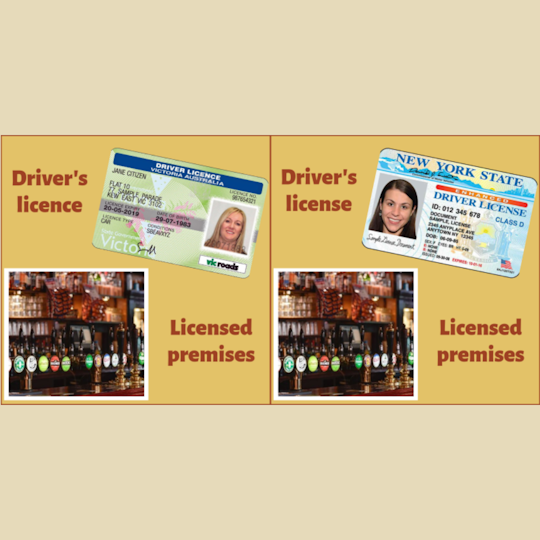It’s a special edition of Commonly Confused Words! This post will focus on a few words that are confusing due to spelling variations.
First off, I highly recommend you read my last post Easy ways you can spot Americanizms if you haven’t already, because it’s gonna make it a lot easier for you. It’s a fairly brief post and forms a great introduction to this post. Secondly, with each of these word pairs, we’re going to look at the Australian English definitions and meanings first before we get to their American English equivalents.
Contents:
Enquiry and Inquiry
When you enquire about something, you’re asking a question or making a query. Maybe you’re lodging an enquiry with your bank as to some unforeseen fees, or maybe you’re lodging an enquiry on a website to ask about what services they offer. Enquiry.
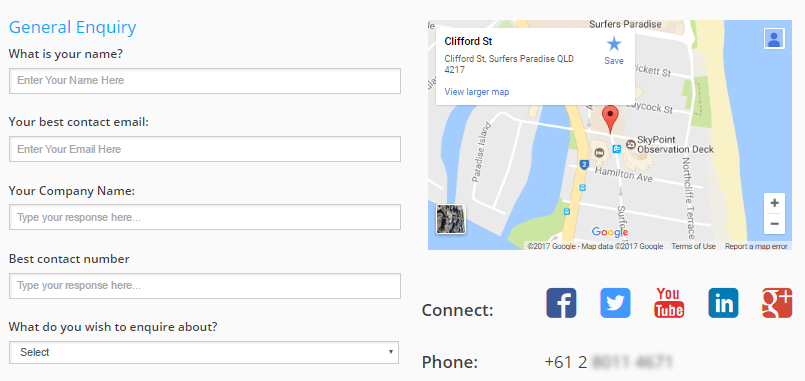
Now, Inquiry is used in the same way as enquiry, however, it’s a more formal type of enquiry and refers to a formal inquest, e.g. the investigation of an accident, a coroner’s inquest, a police inquiry into bribery charges, etc. Inquiry.
Note the pronunciation change with these two words as well:
Enquiry is like En and the qui part is like that of squire.
However, Inquiry is pronounced like In and then the qui part is like that of quidditch.
Both these words can be used as nouns:
- I have an enquiry to make about your services
- The police inquiry was very thorough
as well as verbs:
- I would like to enquire about your cakes
- May I inquire about your whereabouts last Sunday?
Note that when inquire is used as a verb though, the pronunciation of the qui part changes to the same as enquiry (squire). Only when used as a noun does the qui have that quidditch pronunciation.
Now, the confusing part here is that in US spelling, Inquiry is used for both words. So whether you’re doing a bit of private investigating and filling out an official investigation form into your neighbour’s disappearance, or whether you’re booking a hotel for a night, you’re making an inquiry. Now, when googling the pronunciation, it seems it can go either way with this one, either using the quidditch or squire pronunciation.
To finish this one, do not get confused between enquires and enquiries. As you can see, they both look very similar and only a single I separates them.
Enquires is a verb form of enquire: he/she enquires.
Enquiries is the plural of enquiry: I have several enquiries to make.
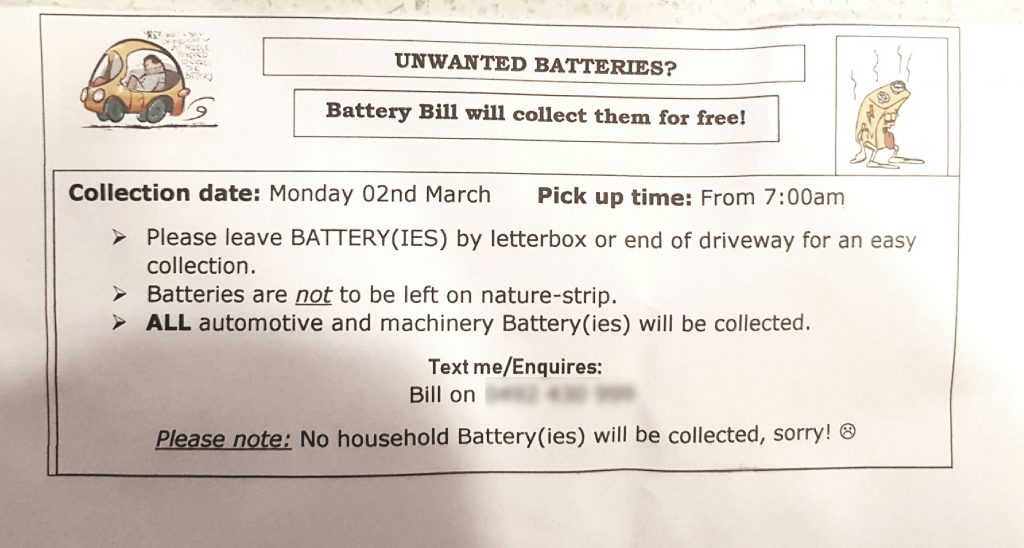
Licence and License
How many times do you see someone talk about a driving license and you think to yourself ‘isn’t it licence?’ Let’s break this one down! The short version is that Licence is a noun while License is a verb.
A licence is a certificate or document from an official body which gives you permission to do something. You might hold a driver’s licence. Bars and nightclubs need to have a licence to sell alcohol. You need to have a licence to own certain pets. You might have a fishing licence. Truck drivers have truck licences. You get the gist.
License is a verb. Just like we saw with Affect in Affect and Effect, you rarely see the word license on its own. You’re far more likely to see it with endings attached to it, e.g. licensed and licensing.
Bars and nightclubs who hold a licence to sell alcohol would have a sign somewhere saying they are fully licensed. Same goes for restaurants. It means they have a licence to sell alcohol. You might have a licensed electrician do some work for you. It means they’re qualified and hold a licence. LMCT stands for Licensed Motor Car Trader which means that the car yard you’re buying your car from has a licence to sell new/used cars.
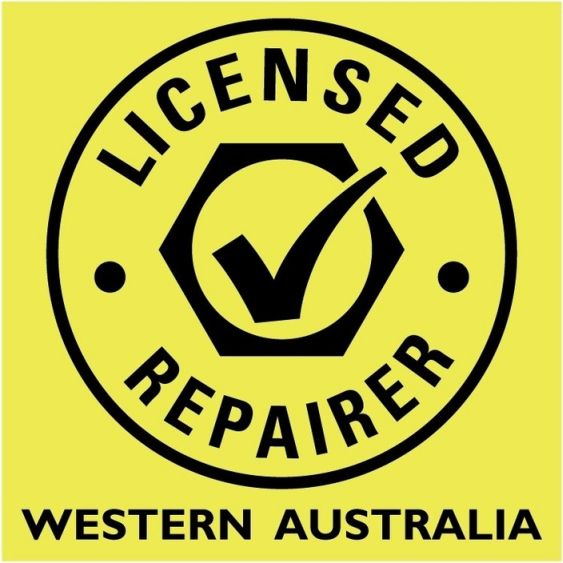
Licensing refers to the act of granting a licence. You might need to go to the Licensing Division when applying for a licence for something. Or maybe someone at VicRoads is in charge of licensing, i.e. granting people licences.
If you’re unlicensed, it means you don’t have a licence, and it can land you in hot water in certain situations, e.g. an unlicensed bar selling drinks, or an unlicensed driver behind the wheel.
If you wanted to use license in a sentence, you could say something like ‘I will license the rights to you’.
To summarise, if you can put the word ‘a’ in front of it, then licence is the word you are looking for. If not, then it must be a verb and you want license, most likely with an ending on the end like -ed or -ing.
A licence ✔
A license ✘
A licensed builder ✔
A licenced builder ✘
Licensing software ✔
Licencing software ✘
In order to obtain a licence, you need to go through some sort of licensing process where someone reviews your info and licenses you. Once approved, you are licensed.
See? Piece of cake.
Now for the US spelling part… In US English, this distinction between the -ce and -se does not exist as the -se form is used for all forms, i.e. License, Licensed, Licensing.
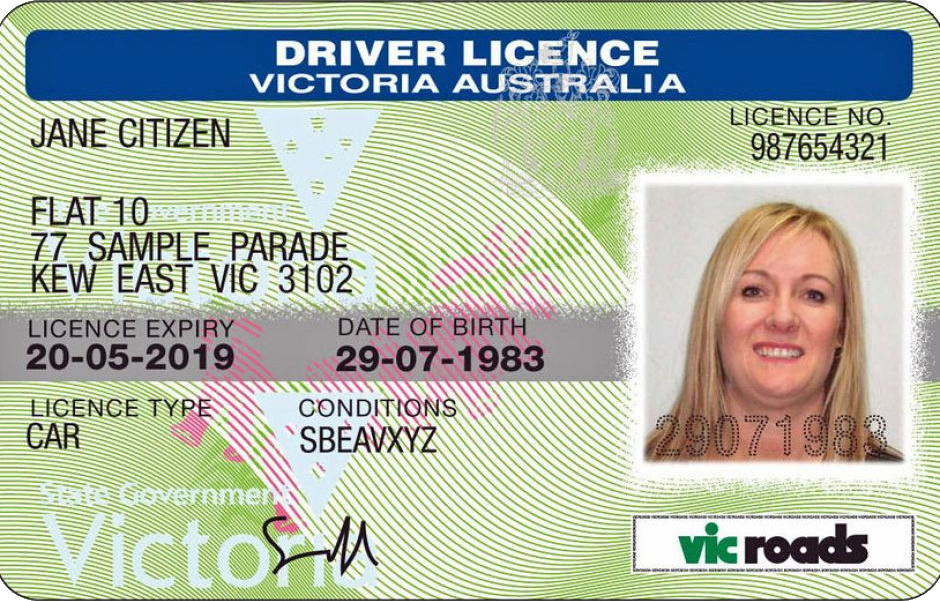
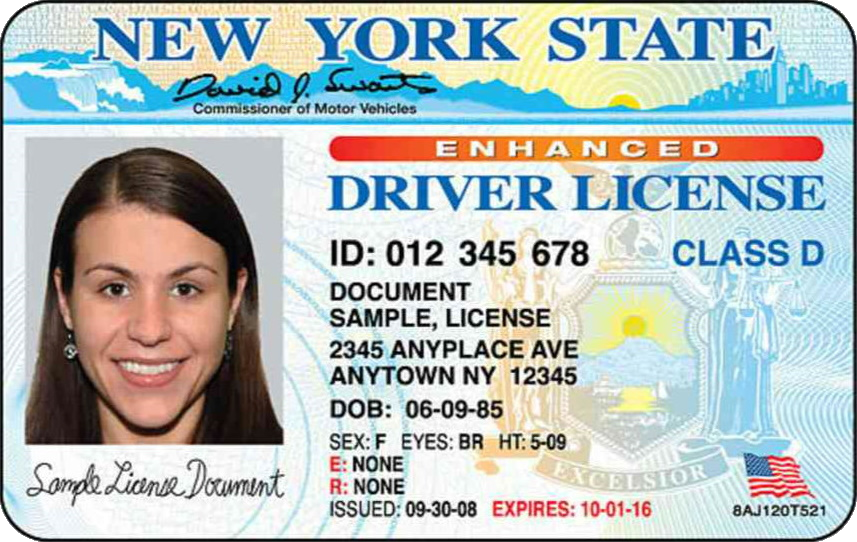
To conclude, if ever you see license (and it’s not being used as a verb), then you know this is using US spelling and not Australian.
Going by that logic, this Facebook post is from an American website or news company. Except it’s not. It’s the UK’s Daily Mail, which would use the same spelling conventions as Australian English.

Practice and Practise
This one is very similar to Licence and License, above, with one small difference. It’s also very similar to our friend Advice and Advise.
The short version is that Practice is a noun and Practise is a verb, just like with Licence and License, and just like Advice and Advise (minus the pronunciation change). So there’s an easy hack for you to remember this one.
Practice makes perfect. Practice refers to doing something over and over until you get it right. Maybe you have dance practice after school, or maybe cricket practice.
A practice could also refer to an institution, e.g. the practice of law, or medicine. It could also refer to the physical location of your doctor, lawyer, etc, e.g. a legal practice, doctor’s practice, or a dental practice. It can also refer to a set of beliefs or structures, e.g. teaching practices and religious practices. When you say something is common practice, it means something happens often, e.g. gossiping to your workmates about a private conversation you overheard in the tea room is common practice. Something that is best practice is like a good habit, or, the most effective method. Getting to work on time is best practice. Lastly, practices are things that are put in place for everyone’s sake; kinda like rules:
- Your work may have safety practices in operation
- Restaurant workers would have hygiene practices in effect
- In these unprecedented times, we’re all adhering to social distancing practices.
In a nutshell, if you’re referring to ‘the practice(s)’ or ‘a practice’, well then that has a c.
Now onto the verb form: Practise. When you are doing any of the above-mentioned things, you are practising them:
- My dance teacher said I need to practise more
- The boy practised bowling and batting at cricket practice
- A doctor who is still practising means that they still work as a doctor
- A priest may well practise what they preach
- I need to wash my hands to practise effective hygiene practices
- If you’re abiding by social distance practices, you are practising social distancing.
As you can see, it can never be practiced with a c because practise is being used as a verb. Take a look at this incorrect example:
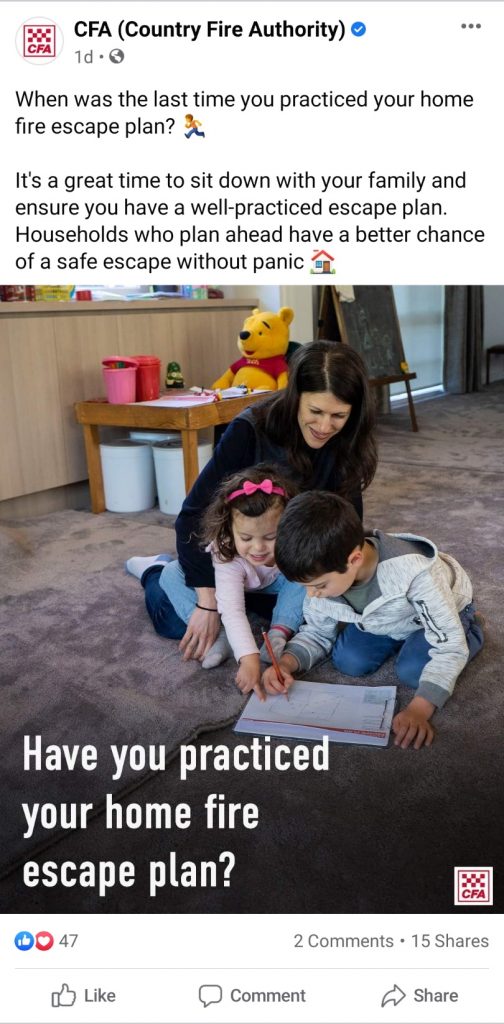
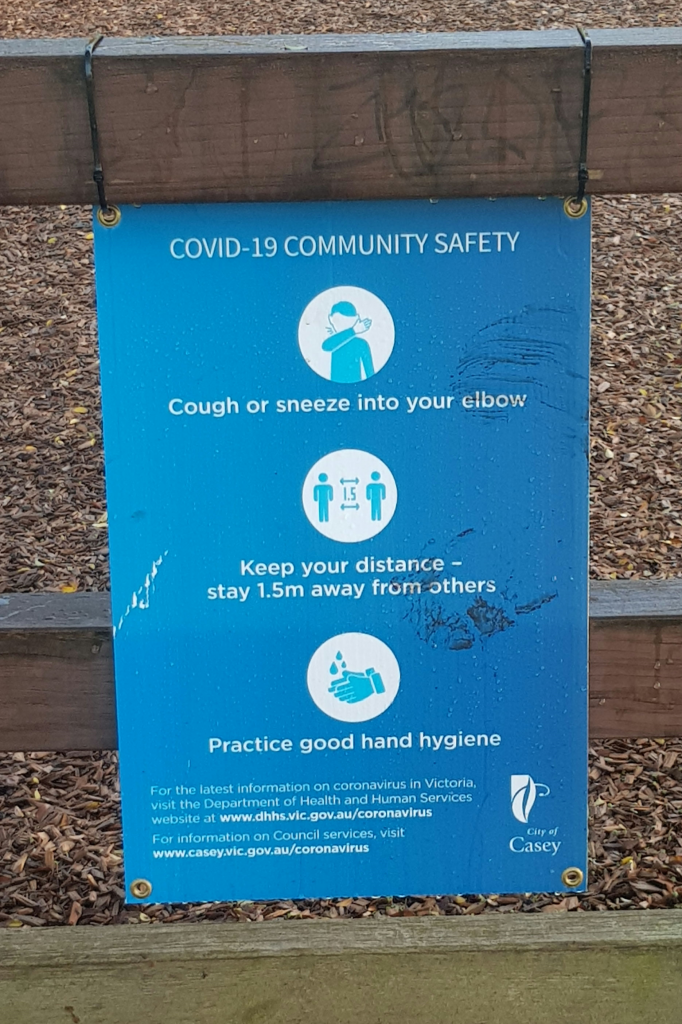
Now for the US English twist. Once again, there is no spelling distinction between the noun and verb form, however, it does vary from what we saw above with License. This time, the -ce version is used for everything, and not the -se. In other words, whether you’re talking about a practice or practices, or whether you’re telling people to practice, you might be in the middle of practicing, or maybe you’re all practiced out… It’s all with a c in US English.
This next image covers the difference in spelling between Aus English and US.
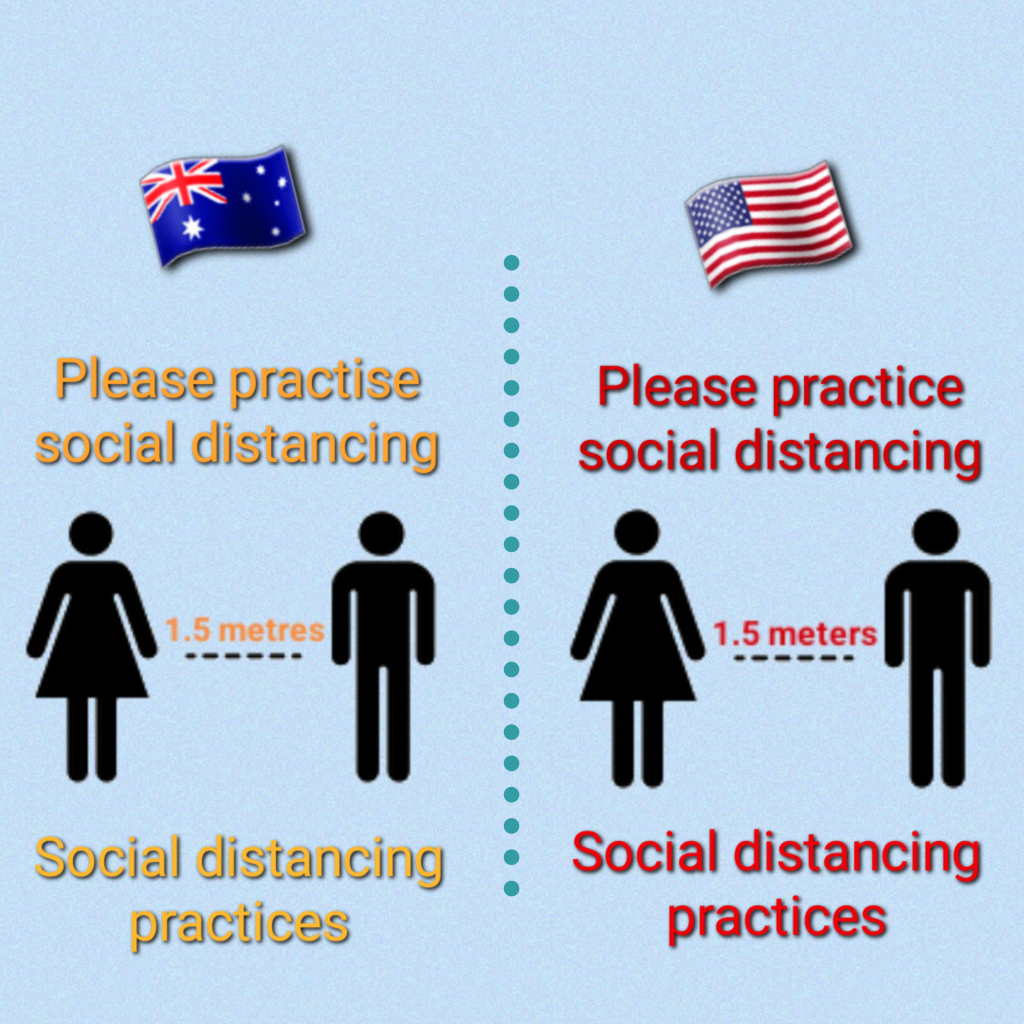
Metre and Meter
We touched on this in our last post.
A metre is a unit of measurement equalling 100 centimetres. You might run the 100 metres sprint in school sports. When you get to 1000 metres, this is called a kilometre. You probably wouldn’t run that in school sports though. Kilometres is used a lot in driving though like the distance to your destination and how many kilometres your car has racked up.
Now, a meter is something that measures and automatically records the quantity of something, e.g. a gas meter or water meter at your home, or a parking meter if you’re out in the city. If ever you use a taxi, they use a meter to calculate your fare.
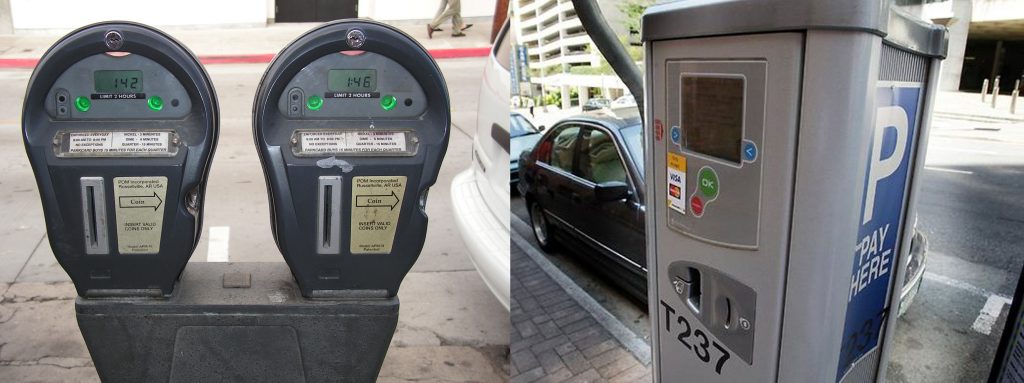
You guessed it! In US English, there is no distinction between the two and the -er spelling is used for both! Meter, centimeter, kilometer, etc.
Story and Storey
A story is something you read to children when it’s time for bed. Who remembers Eric Carle’s The Very Hungry Caterpillar? How good was that one? Or maybe your best mate Dave told you a cracker of a story at the pub the other night, which may or may not have been the absolute truth. Either way, both of these are a type of story. The plural of story is stories.
A storey is a level of a building. You might also call it a floor, e.g. you need to deliver a parcel to the sixth floor. The plural of storey is storeys.
Let’s look at some incorrect examples:
- The man jumped off the top story of that building!
- My local shopping centre has three stories.
US English twist? Story is used for both of these above meanings, as well as the plural, stories. So whether you’re reading more than one kids’ book or you’re parked five floors up from the ground level, stories is the word you’re looking for.
This next image would be correct if it were a US media company. Except it’s not and it’s Australian.

And that’s your lot for today! This will give you some insight as to why you often see words use a different spelling. And you now know which is the correct one to use!

